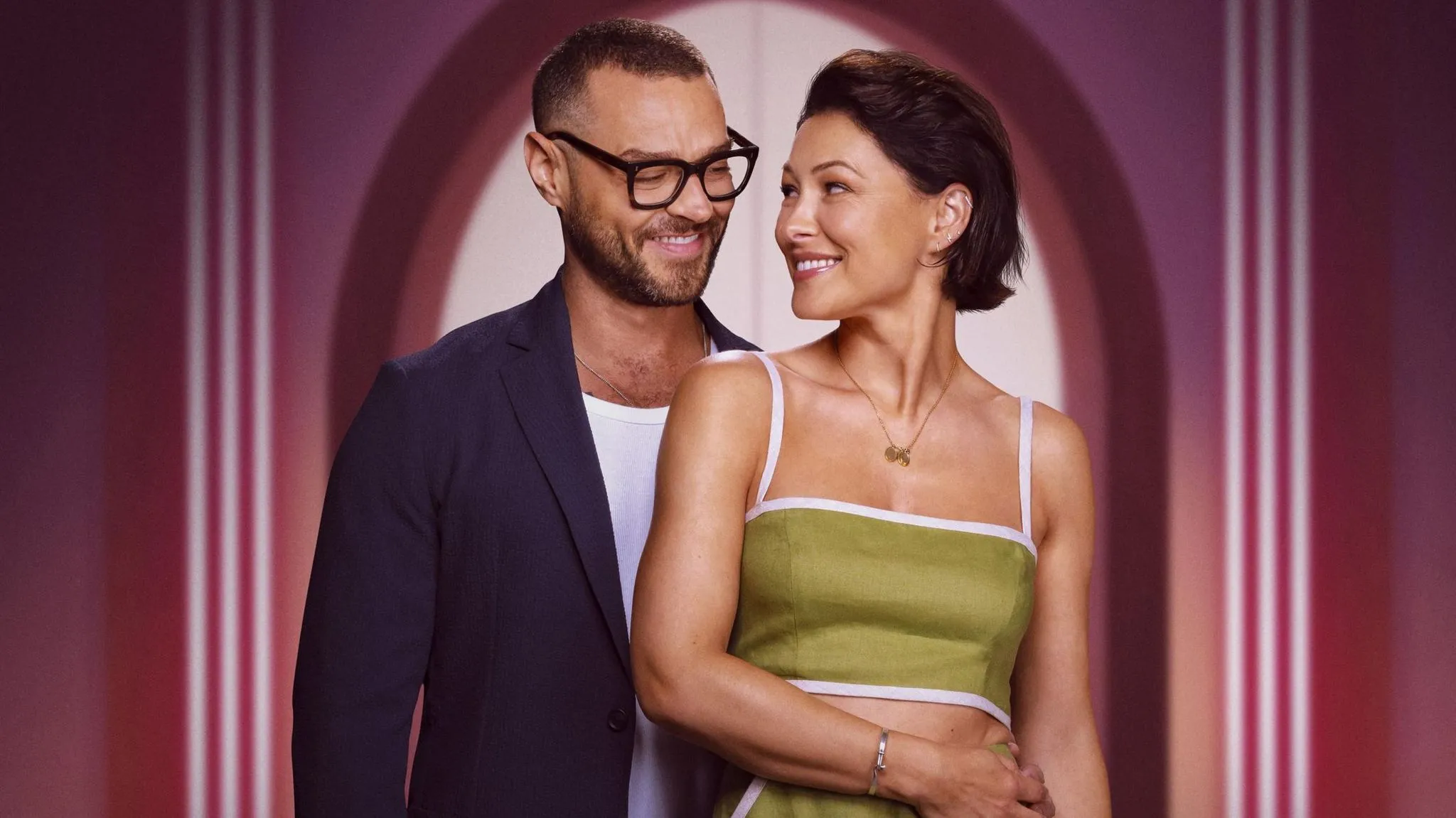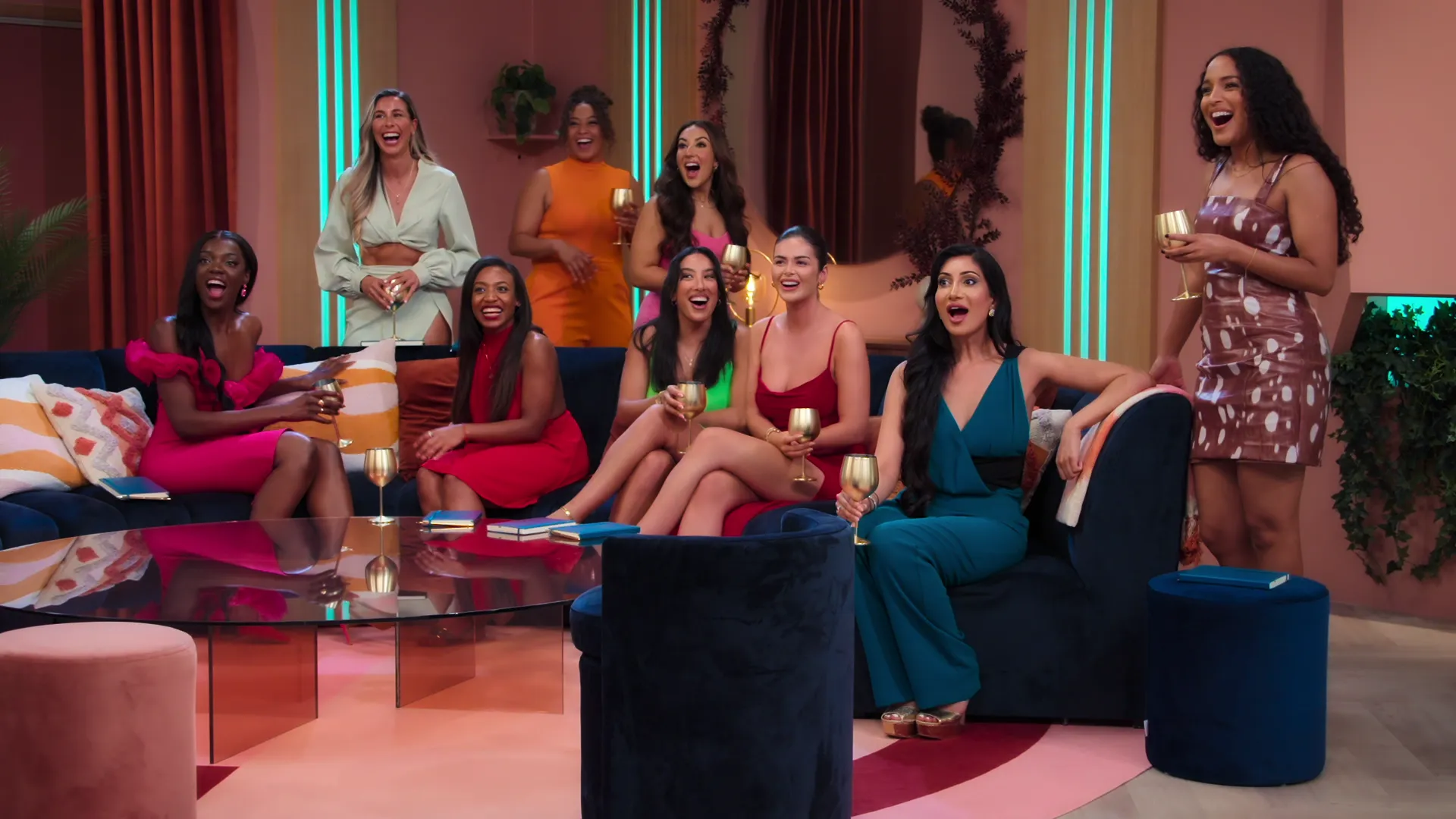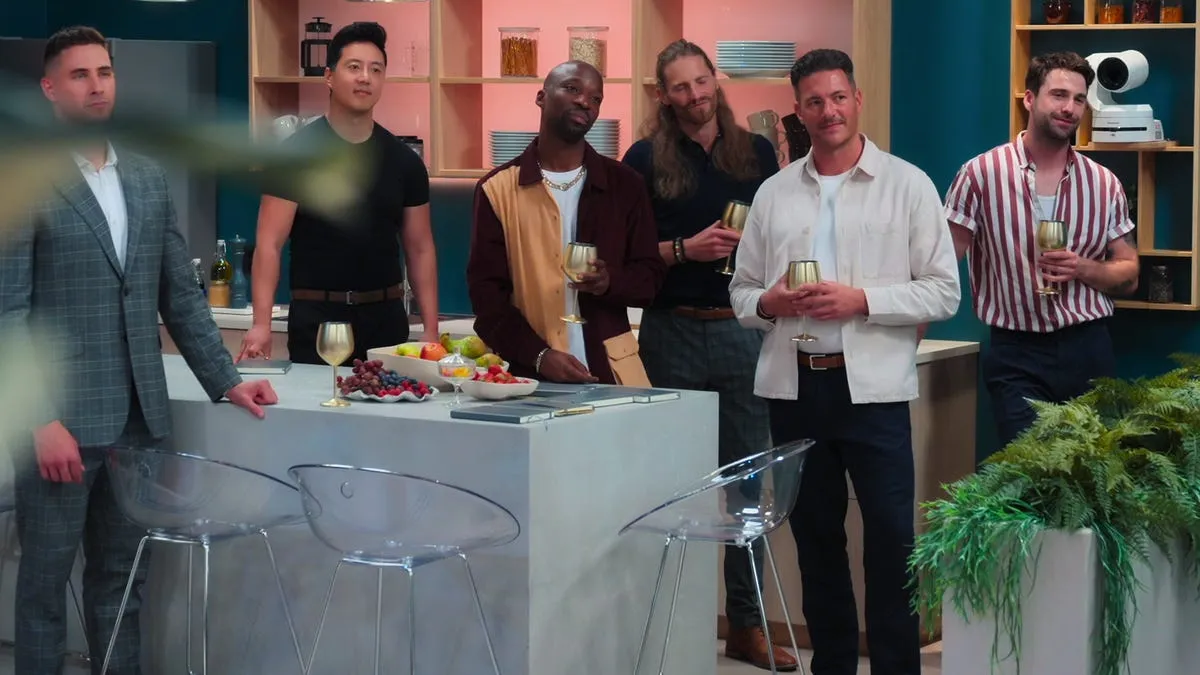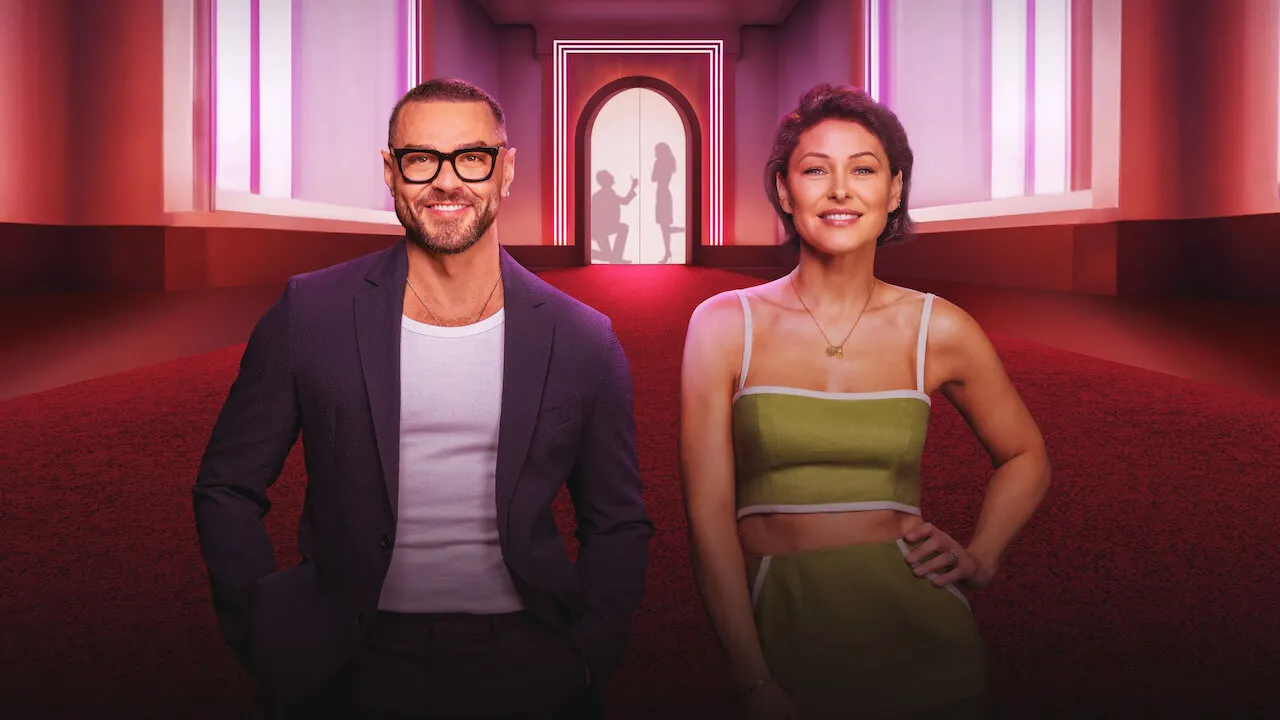It’s a familiar sight by now: confident singles nervously entering colorful compartments in search of romance. Behind solid walls, tentative conversations give way to deeper emotional connections—or painful farewells.
This novel approach to dating forms the core of Love is Blind, Netflix’s globally popular social experiment where looks are literally “not” everything. After conquering viewers worldwide with its unique mix of heart and hijinks, the hit show has crossed the pond with its first ever UK series.
Emma and Matt Willis kindly agreed to guide a new group of lovelorn Britons through the unusual process. While known more for music than matchmaking, both bring down-to-earth charm to their roles. Yet however good-natured the hosts, the pods remain a whirlwind setting for any soul to navigate.
In the first four installments now available, an eclectic selection of single men and women bravely put themselves out there to find lasting love or merely a fleeting fling. Among them are hilarious characters like funeral director Freddie, who struggles to find the bright side in his work, and fun-loving army veteran Bobby bringing rap cred to conversations.
Naturally, not all connections formed in the pods translate fully to reality outside. Ex-boyfriend star Sam proves a charismatic smooth talker but leaves some potential matches cold with his words feeling overly rehearsed. Still, his popularity with the girls fuels the essential reality TV drama fans tune in for.
Proposals are poposed, tough goodbyes are said, and pairs exit ready to see if they truly “love is blind” once together without physical barriers. While cynics might scoff at the artificial nature of the whole affair, its heartfelt highlights remind us that in reality, romance comes in many surprising containers.
Cuppa Love
Stepping into the hosted spots are none other than pop-punk vet Matt Willis and telly darling Emma. Despite limited reality credentials, the husband-wife duo brings their own charms to the pods.
Matt remains a bit stiff in segments but offers contestants caring support. Emma meanwhile chats participants up with ease, respecting their journeys. Together they make a decent Anglo alternative to the staple Lacheys across the pond, offering a humbler approach befitting their background.
As for replicating the US formula, critics cry foul that each scene simply imports elements wholesale. But does repeating a winning script prove so sinful? The glittering goblets, pop soundtrack, and bright fashion retain global viewership. And some tweaks emerge—contestants share sporting passions versus faith. Most admit the pacing flows naturally; tension arises organically from drama within walls instead of contrived interludes. Addicts will spot similarities; newcomers face no confusion.
In the end, successfully adapting a hit shows true colors. While purists pine for innovation, streaming giants require returns. By serving the same steaming beverage with a splash of cream, Love is Blind UK proves itself a comforting cuppa for those seeking love’s highs and lows, stateside or abroad, without spilling a drop of entertainment value from the original recipe.
Cupid’s Jury
Stepping into the pods, we find an assortment both familiar and telling. Cue Sam, the sleek operator laying on luckless charms, while landscaper Benaiah proves shy soul aimed deeper. Others toe clichés—Demi down on herself, Sabrina uncertain of kids. Yet amid surface types surface hints of truth, as chat ventures sexuality and fertility freely.
Still, for each step debated, tradition clings fast. “Husband by month’s end” hangs the heaviest hope. While romance blooms beyond wedding bands, the show’s very premise pushes partnership as life’s prime target. Less focus falls on singles comfortably, so stories left untold outside marriage’s mold. Even the villains spread no gospel counter but stir old passions pro and con with new factors’ veneer.
Netflix doubtless banks on drama’s draw, yet matters of sex and gender warrant wisdom more. When men objective and women compete, might we discern society’s limits, not souls’? Candid talks could challenge what roles presume, but scripts steer clear of such change, progressing plot alone. Viewers deemed judge and jury keep company with Cupid, sorting hints of hearts beneath designs not always so lovingly wrought.
Still for moments real, as when Ollie’s views expand or Demi finds voice speaking truth to herself alone, hope beams that seeds, however small, get sown. If ideals evolve through mirrors not so kind, this show and its successors may raise minds as well as ratings in time, with care and oversight from TV’s god of love.
Expectations vs Reality
Well, the pods have opened, and already we’ve got our breakout star in Sam. It seems the smooth operator’s given more than a few watchers some serious side-eye with lines that land flatter than yesterday’s soda. Plenty view him as in it for the fame, not the finding.
It’s not just Sam stirring feelings either. More than a few raise eyebrows at castings that seem to check all the boxes but miss the point of the premise. With looks this good, is love really blind, or are we just swapping one surface game for another? The competitions between girls in the quarters do little to hide what really drives some.
Not that initial reactions should write the whole story. Through four episodes, impressions remain just that—early. Yet certain signs portend tensions to come. Comments from Sam and others hint at the ugliness the cameras might feed. These “experiments” always promise more than reality allows and rarely end how beginnings appear. With casting holding few surprises by now, will what transpires offer anything new?
Still it’s early days. In the pods, connections form freely, without preconceptions. Perhaps therein lies hope, if the lights and lenses don’t overwhelm it. Only when the walls lift fully will we see what strengthens and what shatters under pressure. This process applies all too readily. For now, suspicions linger more than proofs. The drama’s only starting—let’s see how the shots land when love’s in view, for better or much, much worse.
Off the Pods and Into the World
Well, if marrying a stranger within a month doesn’t offer enough drama, these latest couples are truly diving into the deep end! Four pairs said yes in the pods, but now comes the true test as they come face to face.
Remember the early connections and rosy dreams? In the cold light of day outside the walls, will the same spark still glow? Different personalities will naturally clash where before similarities smoothed the way. And the real world bears little resemblance to fantasy. Jobs and lives and friends and family all demand a place at the table now.
Yet from what we’ve seen, some foundations seem solid. Dave and Emma in particular featured genuine affection—might their bond withstand pressures the format applies? Less certain, Rishi appeared smitten with Daniella, but her own feelings seemed cooler—will hers catch fire away from the pods’ confines?
Only time will tell how hearts and heads align once isolation ends. Whatever happens, the drama is only poised to ramp higher. New episodes next week will deliver their first encounters, early dates, and inevitable tiffs. From joyous highs, no doubt tough lows will follow. But that’s the thrill of it, isn’t it? Let the fireworks begin!
Bittersweet Beginnings
Well, after those opening episodes, it certainly seems this British Love Is Blind has all the recipe for success. Emma and Matt, though less polished than predecessors, bring their own charm to proceedings. And oh, what a procession of personalities the pods have produced!
Yet watching unfold, also obvious format’s flaws remain. Contrivances of the setup struggle ever more to suspend disbelief when hackneyed habits are copied verbatim overseas. “Blind” becomes farce when eye candy abounds. And grim real-world realities like finances feel lightly passed over to preserve fantasies the premise demands.
Still, credit goes to these singles seeking love in the madness of this experiment. Courage alone commands respect, whatever befalls. And drama seems sure to follow as walls fall away and challenges of reality exert their sway. I’ve high hopes a few genuine connections may survive and enrich all our lives if ratings deliver them joy.
Yet the show must evolve and sharpen its lessons if long-continue viewers hope nurture. Beginnings here bittersweet, with moments captivating amid patterns wearing thin. In weeks to come, may the British version find its footing and own voice, or risk growing as stale elsewhere. Opportunity and obligations both lay before. With luck and care, Love Is Blind UK shall thrive and thrive on Netflix for seasons ahead.
The Review
Love Is Blind: UK
Love Is Blind: UK showed promise with its appealing British cast but ultimately struggled to evolve the tried formula that had grown stale Stateside. While some genuine connections seemed to form under contrived circumstances, unrealistic timelines and identical challenges to prior seasons diluted the novelty. Furthermore, the premise of judging relationships without sight became implausible given the attractive singles.
PROS
- Likable and diverse British cast introduced intriguing characters.
- Premise of forming connections without visuals maintained interest.
- Cultural touches like football fandom added national flavor.
- Glimpses of authentic bonding offered heart amid contrivances.
CONS
- Overreliance on tired tropes from past seasons lacked freshness.
- Unrealistic timelines and overtly attractive singles weakened the blind concept.
- Hosts lacked chemistry, and script recycled familiar lines lifelessly.
- Format flaws around finances and logistics are still not meaningfully addressed.





















































Discussion about this post